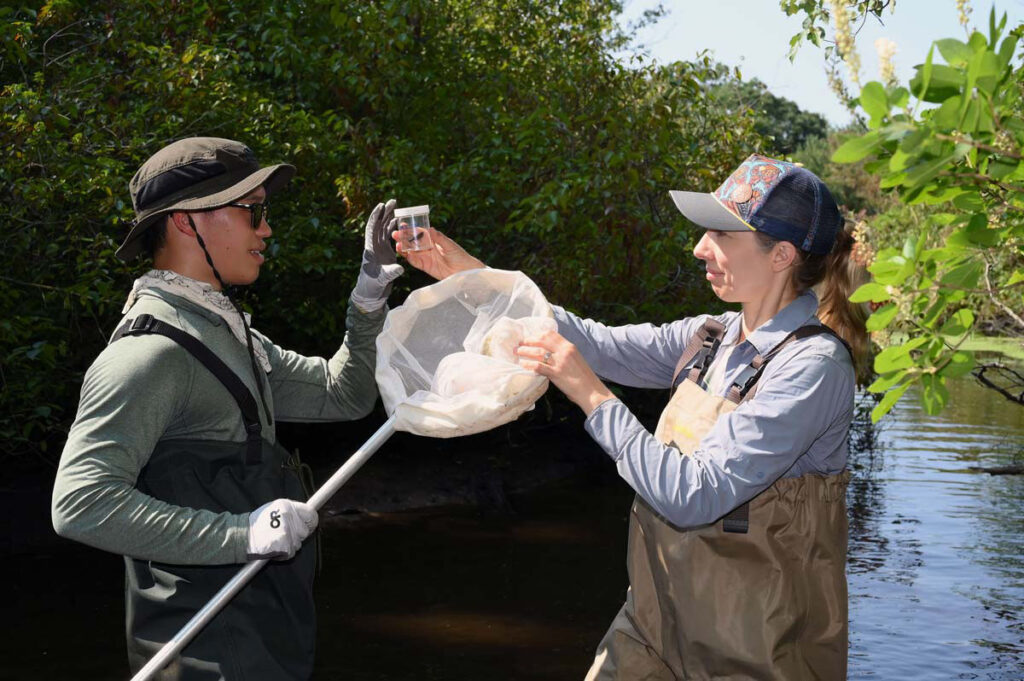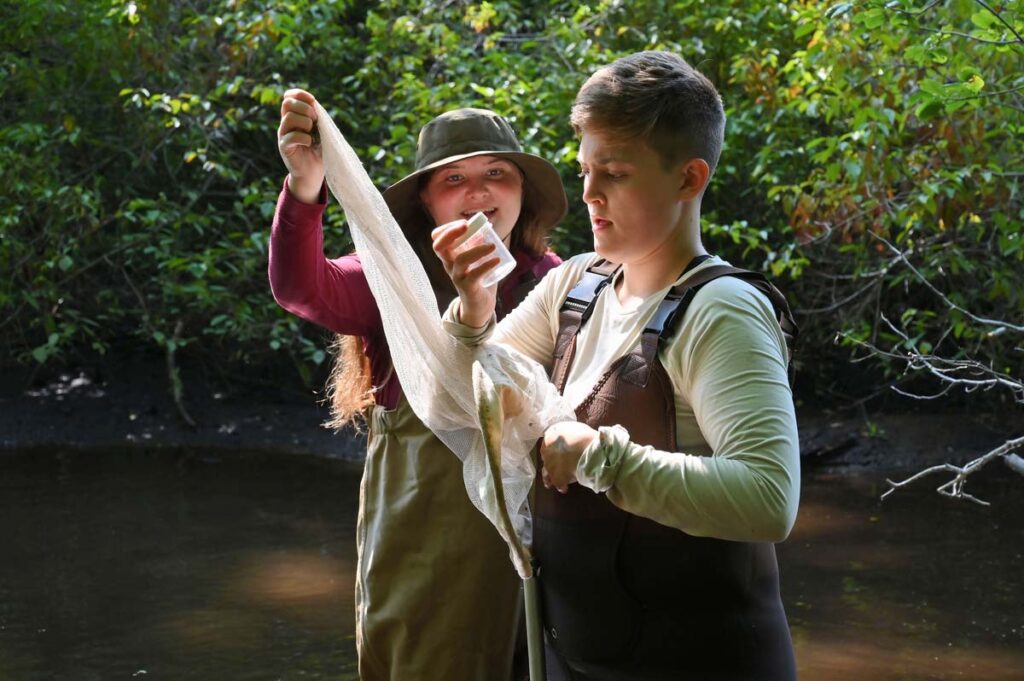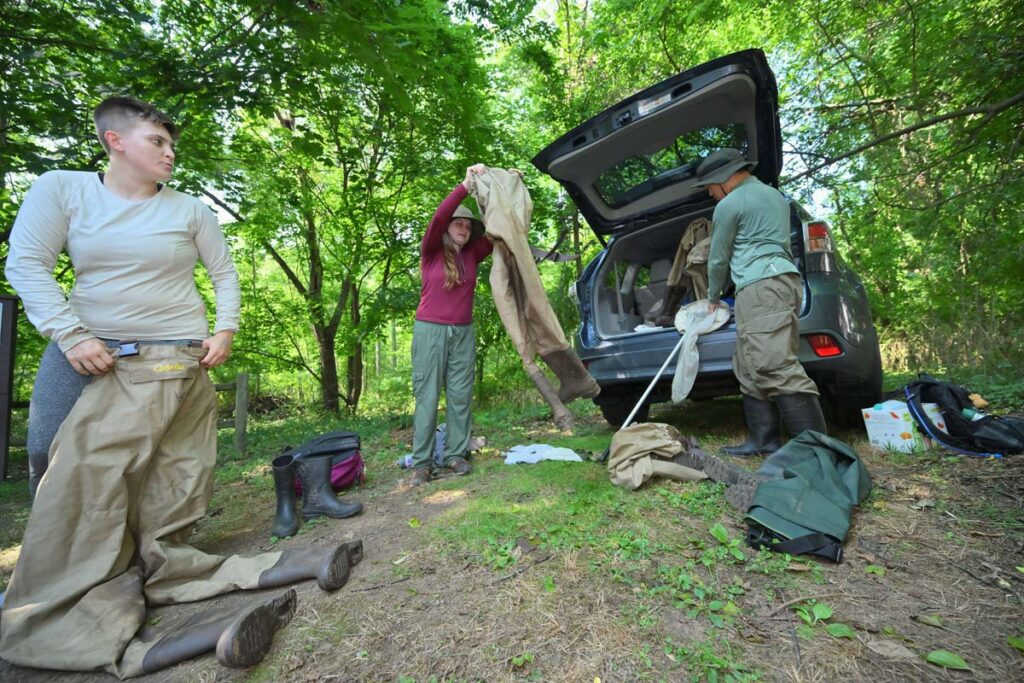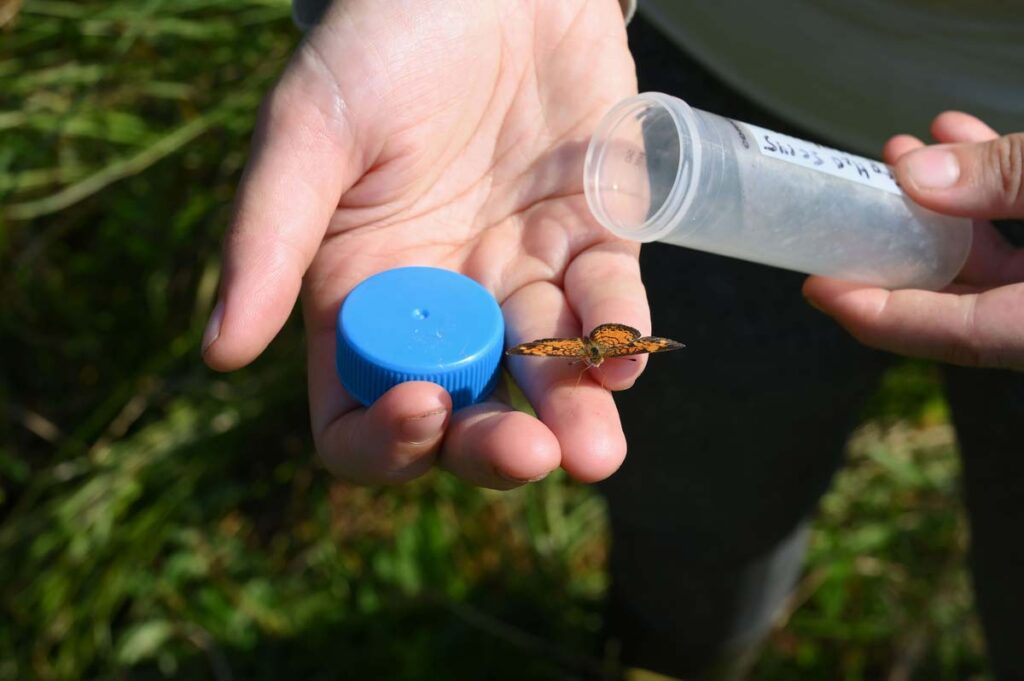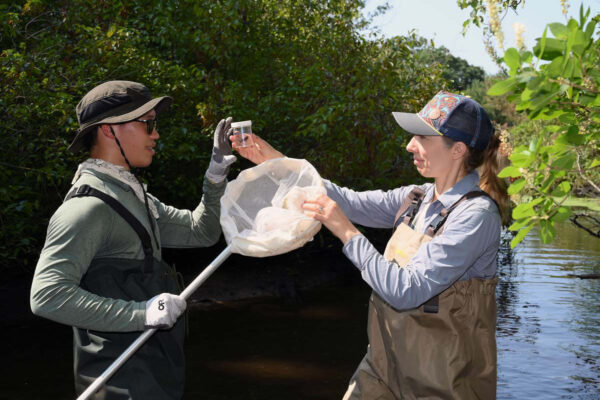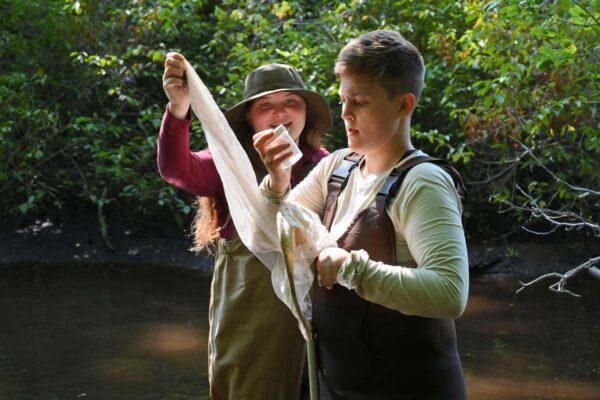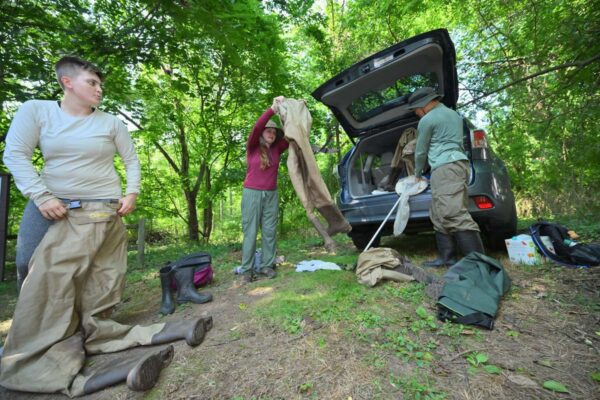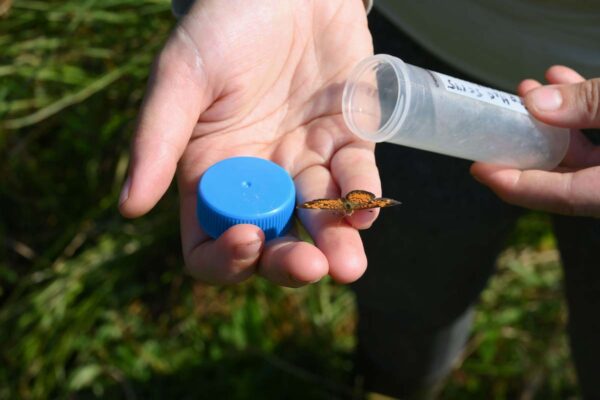Helping to protect a local preserve’s ecosystem
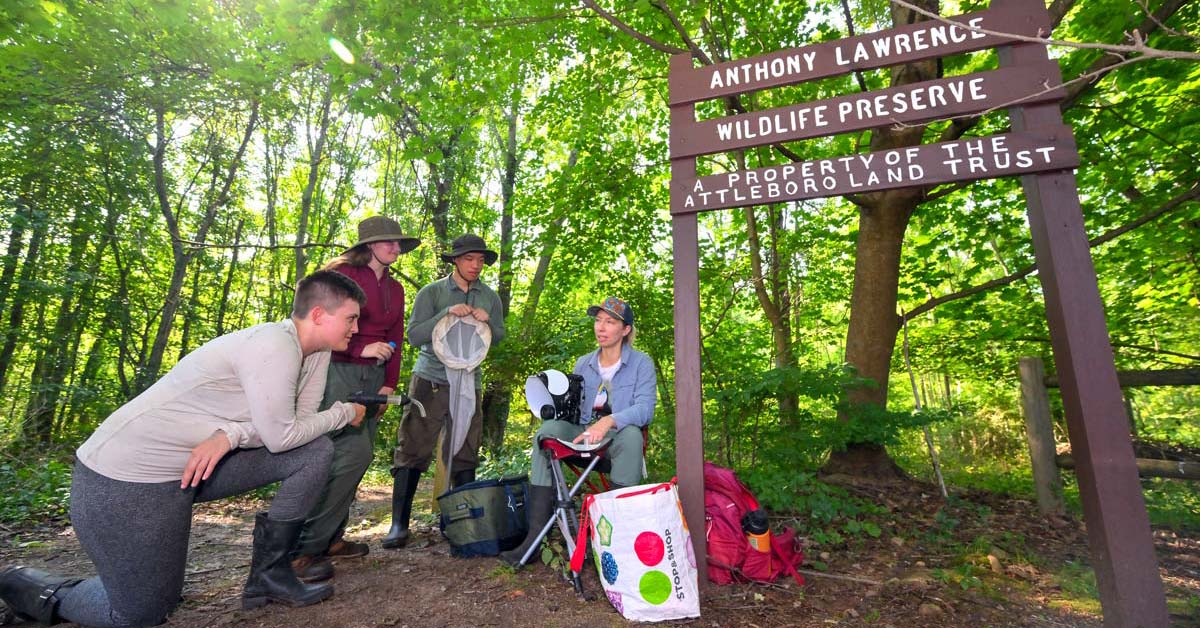
Biology professor Jessie Knowlton leads students in scientific study
It’s a humid late morning in mid-July. Six Wheaton students share laughs as they wiggle into hip-waders and don wide-brimmed hats. They grab their research gear, form a single line and traverse into the Anthony Lawrence Wildlife Preserve in Attleboro, Mass. Sunlight peeks through the canopy of leaves as a couple students mention their eagerness to get in the water to cool down on a hot day.
Under the direction of Associate Professor of Biology Jessie Knowlton, the jovial group is conducting a one-year scientific study of the preserve. On this particular day, they are entering the Seven Mile River. See gallery of preserve photos.
Student field research interns are observing, gathering information and cataloging the insects, plants and animals they find in the preserve, located 10 miles west of campus. Volunteers from the area have been asked to visit the preserve at least once each season and to report the plants and animals they observe using a project website created on the iNaturalist application by the Wheaton research team.
The data collected will be reviewed, summarized and made available to the public. A final report that will be compiled by Knowlton and the students will include recommendations for maintaining and protecting the preserve’s ecosystem, and for engaging the public in stewardship of the property.
A $10,000 Giving While Living Grant from the Woodard & Curran Foundation supports the Attleboro Land Trust’s stewardship of the property, one of several conservation areas it owns and manages.
Knowlton’s team is composed of supervisor Charlie Darmstadt ’24, four seniors and two Wheaton Outstanding STEM Scholars, who participated in an immersive four-week program for first-year students designed to reduce the barrier to STEM research experiences.
“The students are using methods that professional biologists use to conduct this survey,” said Knowlton.
With three habitat types in the preserve (upland forest, river and freshwater marsh), her team set up five plots in each habitat where they surveyed all the different plants and insects.
The team also installed trail cameras with automated recording devices, programmed to capture five minutes of audio at the start of each hour, every day, as well as motion-activated video cameras.
“We’ll review those recordings with the special software that analyzes the spectrograms that the different sounds make. Using a database of spectrograms for animals, we can identify them to species—including birds and amphibians,” said Knowlton.
The work began in early June as the students learned how to identify different species of plants. They catch insects with nets or small insect vacuums and put them in vials and then into a cooler with ice for half an hour to slow them down.
“After taking macro (close-up) photos we can identify them to the family or genus and sometimes the species level, before they warm up and fly away,” said Knowlton.
Students are learning and using new skills that they can apply in the future.
Allen Zhang ’25, an environmental science major, shared that the project has enabled him to efficiently refine his surveying and data collection skills while exploring a career option.
“It exposed me to the practical challenges of the work and the need to be flexible and efficient in problem solving through inclement weather or equipment malfunctions,” he said.
In addition to achieving the Attleboro Land Trust’s goals of documenting the preserve’s species and then considering how to increase its biological value, Knowlton has other outcomes in mind for the project.
“I’m working to ensure that the students collect data in a systematic way, so they can analyze it later. It will help them to explain how much overlap there is among the community of insects there in the river, marsh and forest, for instance.”
Emelia Pettit ’25, an environmental science major, touted the learning opportunities she’s had and noted that she plans to use the survey data for her senior honors thesis.
“I am hoping to look at vegetation diversity across environments,” said Pettit, who plans to pursue a Ph.D. in ecology and evolutionary biology after graduation.
“With the liberal arts education and my research experiences gained here and abroad through Wheaton, I feel prepared for graduate school and confident that I want to pursue a career in environmental research.”

